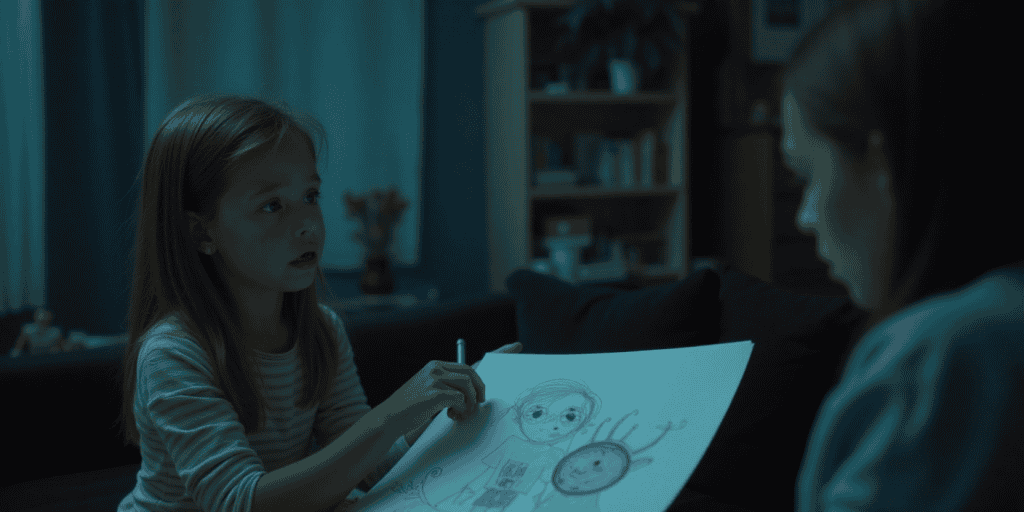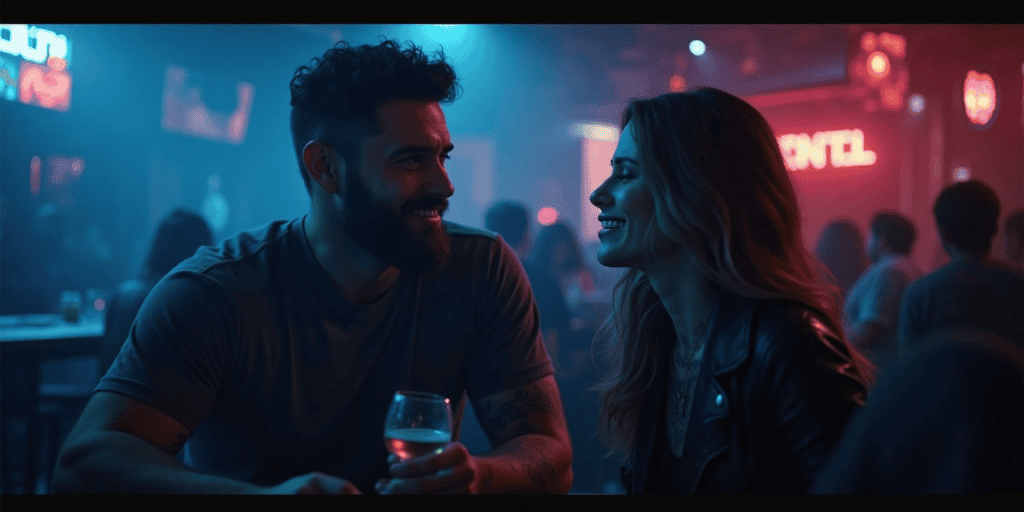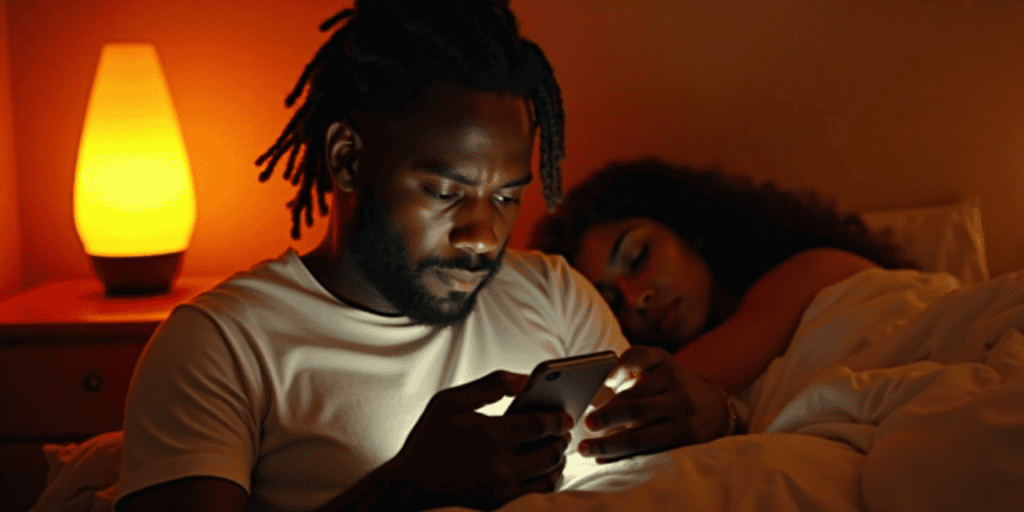I tell myself it’s no big deal. That you’re just “too picky.” But deep down, I don’t trust people, and it’s not a personality flaw. It’s trauma.
I grew up walking on eggshells. In a home where love came with conditions and trust felt dangerous, I learned early that being vulnerable often led to pain.
Survival meant staying alert, shrinking myself, and anticipating chaos before it erupted.
This wasn’t a personality quirk, it was my nervous system adapting to an unsafe environment. In narcissistic families, distrust isn’t dysfunction. It’s self-protection.
Thought, it took me 20 years to understand these patterns weren’t my fault. They were normal responses to abnormal circumstances.
Today, I’ll unpack how narcissistic family trauma shapes your ability to trust others and how to start rebuilding that trust, one safe step at a time, without losing yourself ever again.
Table of Contents
What Narcissistic Families Teach You About Trust?

In a healthy family, trust is modeled. You say what you mean, you do what you say, and your feelings are met with care, even when there’s conflict.
But in narcissistic families? Everything is upside down.
When I was a kid, trusting my parents meant giving them ammunition. If I cried, I was mocked. If I succeeded, they found a way to take credit.
And if I failed, they’d say, “I told you so.” Nothing was ever just… mine. Not my joy, not my sadness, not even my thoughts.
So I learned quickly: if you care about something, hide it. If someone gets too close, distract them. If someone is kind, wait for the twist.
Trust Was Never Safe In Your Childhood
I remember being 9 years old and excited about a drawing I made in school. I showed it to my mother, hoping she’d be proud. She took one look, laughed, and said,
“This? You think this is good? You’re not really artistic.”
It sounds small. But in that moment, something shifted. I tucked that part of me away and decided: never show her anything again.
Moments like that add up. You start to see trust as something reckless, like walking into a trap with your eyes open.
And it’s not just in your head.
A 2021 study found that people with a history of childhood emotional maltreatment show significant changes in how they perceive and engage in trust-based interactions.
Their brains process trust differently, becoming more guarded and less likely to interpret others as safe.
Reading that study was both validating and heartbreaking.
It took me years to understand that my hypervigilance wasn’t a character flaw; it was my nervous system trying to keep me safe.
The real breakthrough came when I stopped trying to ‘fix’ my trust issues and started learning how to trust myself first. That changed everything.
You Were Taught That Love = Manipulation
My father only gave me attention when I performed. Like when I got good grades, or when I made him look good in front of others. But when I had needs, emotions, or boundaries? Suddenly, I was “selfish.”
Love was never unconditional. It was a reward. And if I disappointed him, it was taken away.
That trains you to see relationships as a transaction: If I act right, they’ll care. If I mess up, I’ll be punished.
Trusting Someone Means Leaving Yourself Vulnerable to Attack

I once told my toxic older sister that I was feeling overwhelmed at school, and for a second, she looked concerned. But by dinner, it had become a punchline.
“She thinks she’s stressed. Wait ‘til she has real problems.”
That wasn’t the first time I tried to open up and regretted it. Vulnerability didn’t feel human. It felt like exposing a wound and inviting someone to poke it.
So I started keeping everything to myself. Not because I wanted to be mysterious or private, but because self-protection became a habit I couldn’t unlearn.
Being Open Got Weaponized Against You
One of the cruelest things narcissistic families do is pretend to be close, until you say something real.
When I was in high school, I told my narcissistic mom I was having a hard time in school… that I felt anxious all the time. Two days later, during an argument, she threw it in my face:
“Maybe if you weren’t such a nervous wreck all the time, people wouldn’t avoid you.”
That was it. That’s all it took for me to decide that emotional honesty was a luxury I couldn’t afford.
You Learned: “Don’t Trust Anyone, Especially the Ones Closest to You”
The people who should’ve been my safest place were the ones who hurt me the most.
And that creates a kind of emotional confusion that’s hard to describe. You grow up believing that love and harm come in the same package. And if you want one, you have to accept the other.
So I internalized this rule early: Don’t trust anyone too much. Especially not the people who say they love you.
Because love meant expectations. Love meant control. Love meant being indebted.
And I wasn’t going to be trapped again.
How It Showed Up As a Kid
I didn’t think of myself as someone with “trust issues.” But looking back, the signs were everywhere.
- I second-guessed everyone’s intentions, especially when they were nice to me.
- I became a chameleon, always reading the room, trying to be what people wanted.
- I kept secrets, not because I was rebellious, but because secrets were the only things that felt truly mine.
And underneath it all, I felt alone. Even in a room full of people, I never really relaxed. Because I knew, deep down, that no one could be trusted with the real me.
How This Trauma Follows You Into Adulthood?

The tricky part is, when you leave that toxic family system, the fear doesn’t leave with you.
I spent years thinking I had “moved on.” But every time someone tried to get close, I felt like I was being hunted.
You Struggle to Believe People’s Intentions Are Genuine
Compliments made me squirm. I would analyze them for hidden messages. A simple “You’re so talented” turned into “What do they want from me?”
You Don’t Let People In
I told myself I was “independent.” But really, I was terrified of intimacy. I had friends, sure. But no one really knew me. Not the messy parts. Not the scary parts. Not the truth.
You Test People to See If They’ll Abandon You
I pushed people away before they had the chance to hurt me. Pick a fight, go cold, disappear. Anything to avoid the gut-punch of betrayal.
You Assume Kindness Means Manipulation
If someone offered help, I’d say no. If someone opened up, I’d get suspicious. I was always waiting for the mask to fall.
Hyper-Independence Becomes Your Armor
I didn’t ask for help. I didn’t accept support. I told myself, “If I need no one, no one can use me.”
It was safe. It was lonely.
“When love was conditional, safety became loneliness.”
I lived like this for years, convinced that needing no one meant I was strong.
But there’s a difference between being independent and being isolated.
I didn’t realize how much I was missing until I started learning the difference between protecting myself and punishing myself.
Turns out, you can have boundaries AND connection. You just need to know how.
4 Signs You’re Still Carrying Distrust

Even after years of “healing,” I catch myself falling into old patterns. And that’s okay. Awareness is where healing starts.
1. You Sabotage Closeness (Romantic or Platonic)
Dating was a minefield. If someone got too close, I found a reason to end it. Sometimes I picked people who were emotionally unavailable, because that felt familiar.
2. You Feel Uncomfortable With Compliments or Support
My best friend once told me she admired my strength. I laughed it off and changed the subject. Later, I realized I didn’t know how to accept care without suspicion.
3. You Assume Everyone Will Disappoint You Eventually
So I kept an exit plan. Always. Just in case.
4. You Always “Have a Plan” in Case They Turn on You
Even with people I love deeply, there’s still a part of me that stays alert. Waiting. Preparing.
How I Started Rebuilding Trust (Without Losing Myself Ever Again)?

Healing didn’t come to me in a neat little moment of clarity. It came in quiet, uncomfortable decisions, the kind that made my stomach turn, but felt like the next right thing.
Step 1: Learning to Trust Doesn’t Mean Ignoring Red Flags
For a long time, I thought trusting people again meant setting myself up to be hurt.
Like I had to either be open or protected, but not both. But I learned the difference between ignoring my intuition and giving someone a chance to show me who they really are.
Now, trust is a process. I observe. I stay present. I don’t explain away my discomfort. And I don’t override red flags just to avoid being “too guarded.”
Step 3: I Practiced Trusting Safe People in Small Ways
I didn’t start by baring my soul. I started by letting my guard down for a second, and watching what happened next.
- I told a friend a story from my past I’d never shared before. She didn’t interrupt, fix it, or make it about her. She just held space. That was new.
- I let someone support me when I was sick. No apology, no guilt. Just receiving help.
- I accepted compliments. And instead of deflecting or joking it off, I made myself say, “Thank you.”
It was terrifying at first. But every time someone met me with kindness instead of control, my nervous system softened. Just a little.
Step 3: I Used Tools to Help Me Rebuild From the Inside Out
Journaling was my mirror, and reading research papers and books. I didn’t hold back in my pages. I wrote the ugly stuff, the paranoid stuff, the dreams I was scared to admit out loud.
Therapy gave me language. It showed me that what I experienced wasn’t “normal” and that I wasn’t alone.
Self-help books cracked something open in me. I started to understand that I wasn’t dramatic. I was shaped by an environment that demanded self-betrayal in exchange for survival.
And slowly, I began to see that trusting others wasn’t just about them. It was about trusting myself to notice, to act, and to walk away if I needed to.
Trusting Again Doesn’t Mean Being Naive, It Means You Can Leave When You Need To
That’s the biggest shift. I no longer see trust as handing over the keys to my heart. It’s not a gamble. It’s a choice I make over and over based on what someone shows me, not what I hope they’ll be.
Because now I know: I can leave. I can set boundaries. I can say no. And that’s what makes trust feel safe again.
Bottom Line: You’re Not Broken for Guarding Your Heart
The hardest part of my healing journey wasn’t learning to trust others; it was learning to trust that I could handle whatever came next.
That I could open my heart without losing myself. That I could have boundaries without building walls.
It took me four years of trial and error to figure out how to do this.
How to let people in without abandoning myself in the process. How to recognize the difference between healthy love and familiar dysfunction.
Eventually, I found my way back to connection, real connection, not the conditional love I grew up with. I documented everything I learned because I know how lonely that in-between space can feel.
You’re not hard to love. You were just never given a safe place to learn how. And now? You get to create that safety for yourself, one brave step at a time.
Related Posts:
- This Is Why Waiting for Closure from Your Narcissistic Family Hurts So Much!
- Why Your Narcissistic Family Expects You to Move On Without an “Apology”?
- Why People Ignore Family Abuse Until You Expose the Dirty Truth?
- Why You’re Still Scared to Set Boundaries With Your Toxic Family?
- Healing From Narcissistic Family Abuse: My Story, Your Hope


